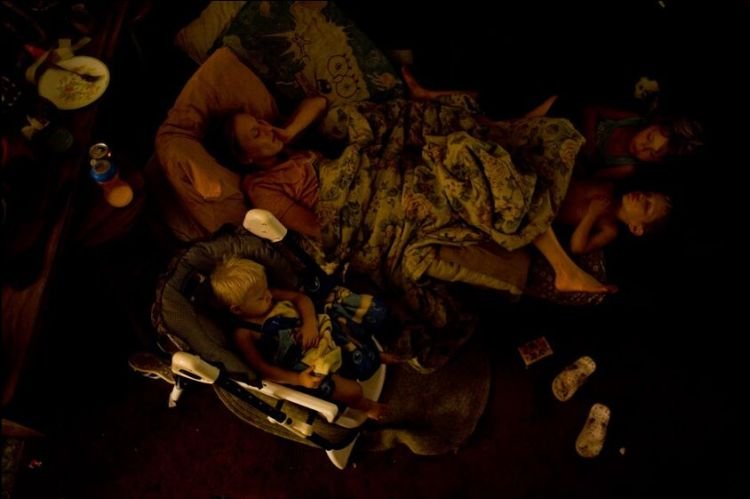|
|
Shooting American Family, Kentucky, By Carl Kiilsgaard
|
As it has been explained by Deleuze, Guattari and Foucault, as well as other philosophers and psychiatrists such as Laing and Reich, the patriarchal-family conceived in the West tradition serves the purpose of perpetuating a propertarian and authoritarian society. The child grows according to the oedipal model, which is typical of the structure of capitalist societies, and he becomes in turn owner of submissive children and protector of the woman.
Some argue that the family institution conflicts with human nature and human primitive desires and that one of its core functions is performing a suppression of instincts, a repression of desire commencing with the earliest age of the child. As the young undergoes physical and psychological repression from someone for whom they develop love, they develop a loving attitude towards authority figures. They will bring such attitude in their adult life, when they will desire social repression and will form docile subjects for society. Michel Foucault, in his systematic study of sexuality, argued that rather than being merely repressed, the desires of the individual are efficiently mobilized and used, to control the individual, alter interpersonal relationships and control the masses. Foucault believed organized religion, through moral prohibitions, and economic powers, through advertising, make use of unconscious sex drives. Dominating desire, they dominate individuals. According to the analysis of Michel Foucault, in the west:
the (conjugal) family organization, precisely to the extent that it was insular and heteromorphous with respect to the other power mechanisms, was used to support the great "maneuvers" employed for the Malthusian control of the birthrate, for the populationist incitements, for the medicalization of sex and the psychiatrization of its nongenital forms.
—Michel Foucault, The History of Sexuality vol I, chap. IV, sect. Method, rule 3, p. 99
|
|









